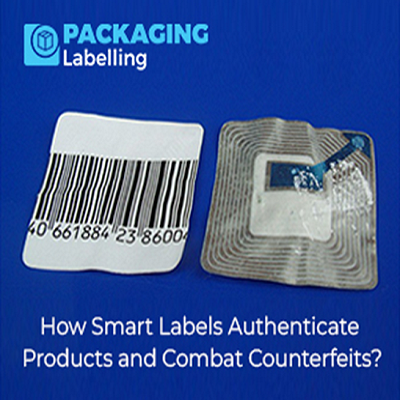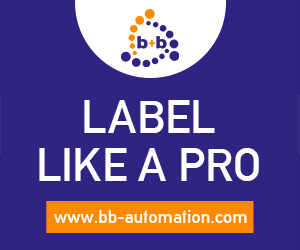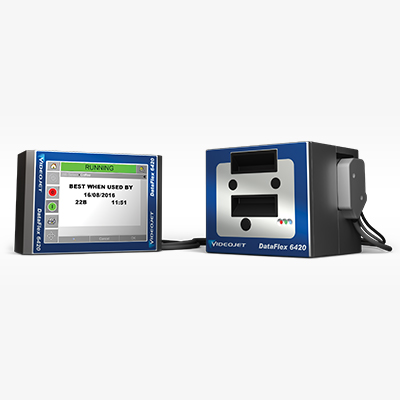Articles
How Smart Labels Authenticate Products and Combat Counterfeits?

In an increasingly interconnected world, counterfeit products have become a pressing concern for businesses and consumers alike. The rise of advanced technologies has paved the way for innovative solutions, and one such breakthrough is the integration of smart labels. These intelligent labels offer a powerful tool in product authentication and counterfeit prevention, providing a reliable means to ensure product genuineness. This article delves into the functionalities, benefits, and implications of smart labels as a solution for product authentication and counterfeit prevention.
Understanding Smart Labels
Smart labels, also referred to as RFID (Radio Frequency Identification) labels or NFC (Near Field Communication) tags contain embedded microchips or sensors that establish communication with external devices like smartphones or scanners. These labels can store and transmit data, making them a vital tool in product authentication. By harnessing wireless communication technologies, smart labels facilitate smooth and secure interactions between products, consumers, and businesses.
Authentication features
One of the key advantages of smart labels lies in their real-time authentication. Each label carries its own identifier, allowing products to be uniquely identified and verified. This identification process can be achieved by scanning the label with a smartphone or a specialized reader, instantly providing authentication results. The smart label can store details such as the manufacturing date, batch number, and origin. This enables consumers to validate the product's authenticity and ensure its compliance with quality standards.
| Also Read: The Future of Smart Packaging: Bridging the Gap with IoT Integration and Enhanced Consumer Engagement |
Supply chain transparency
Smart labels benefit end consumers and play a crucial role in supply chain management. By integrating smart labels into product packaging, businesses gain unprecedented visibility into their supply chains. Each interaction with the smart label, from production to distribution, can be recorded and tracked, creating an immutable record of the product's journey. This transparency helps identify potential vulnerabilities or irregularities in the supply chain, making it easier to detect and mitigate counterfeit activities.
Anti-Counterfeiting Measures
Counterfeit products pose significant risks to consumer safety, brand reputation, and revenue streams. Smart labels offer effective anti-counterfeiting measures by introducing multiple layers of security. These labels can incorporate advanced features such as tamper-evident seals, encrypted data, and authentication codes that are difficult to replicate. Additionally, smart labels can be programmed to trigger an alert if tampering is detected, providing an extra level of protection against counterfeiters.
Consumer Empowerment and Trust
Counterfeit products have eroded consumer trust and confidence in the marketplace. Smart labels empower consumers by distinguishing genuine products from counterfeit ones. With a simple scan of the smart label, consumers can instantly access information about the product's origin, authenticity, and details such as product reviews or certifications. This transparency enhances consumer trust, cultivates brand loyalty and strengthens businesses' reputations committed to fighting counterfeiting.
Industry collaboration and standards
Smart labels as a solution for product authentication and counterfeit prevention depend on industry collaboration and standards. To ensure interoperability and compatibility across different products and sectors, stakeholders must work together to develop standardized protocols and guidelines for smart label implementation. This collaboration can foster trust among manufacturers, retailers, and consumers, further enhancing smart labels' effectiveness in combating counterfeiting.
Global Impact and Economic Losses
Counterfeiting has profound global ramifications, causing substantial economic losses across various industries. According to the International Chamber of Commerce, counterfeiting causes annual revenue shortfalls of trillions. However, smart labels offer a proactive defense against this pervasive issue, empowering companies to protect revenue streams and uphold brand integrity. By implementing smart labels, manufacturers can mitigate the financial impact of counterfeit products, safeguarding their market position and preserving consumer trust.
Brand Protection and Customer Trust
For brands, protecting their reputation is vital. Counterfeit products infringe on intellectual property rights but also dilute brand value. Smart labels serve as a visible deterrent to counterfeiters, as they are challenging to replicate accurately. Additionally, these labels enable consumers to validate product authenticity, ensuring genuine items. By actively combating counterfeiting, brands can reinforce customer trust and loyalty, strengthening their market position.
Challenges and considerations
While smart labels hold immense potential, their widespread adoption faces challenges and considerations. One primary concern is the cost associated with smart label technology. This can vary depending on factors such as volume, complexity, and integration requirements. Another consideration is the need for standardized protocols and interoperability to ensure seamless communication between smart labels and various scanning devices. Additionally, privacy and data security concerns should be addressed to safeguard consumer information and prevent unauthorized access to sensitive data stored within smart labels.
Addressing Challenges and Future Developments
While smart labels offer significant benefits, several challenges need to be addressed for their widespread adoption. Smart label technologies can be expensive for small-scale manufacturers. Therefore, efforts should be made to develop cost-effective solutions that cater to different budget constraints. Additionally, ensuring the security of smart labels and their communication channels is critical to prevent hacking or tampering.
Looking to the future, advancements in technology hold substantial promise for further enhancing smart labels' capabilities. Blockchain technology can provide an immutable and transparent record of product provenance and transactions, adding an extra layer of security and trust. Artificial intelligence algorithms can analyze data collected from smart labels to identify patterns and anomalies, enabling more efficient and proactive anti-counterfeiting measures.
Conclusion
Smart labels have emerged as a powerful solution for product authentication and counterfeit prevention. Through their authentication mechanisms, real-time tracking, secure data exchange, and anti-counterfeit technologies, these labels empower consumers, enhance supply chain visibility, and deter counterfeiters. With continued industry collaboration and advancements in technology, smart labels are poised to play a pivotal role in safeguarding product integrity, protecting consumer trust, and combating counterfeiting. This is in the years to come.









